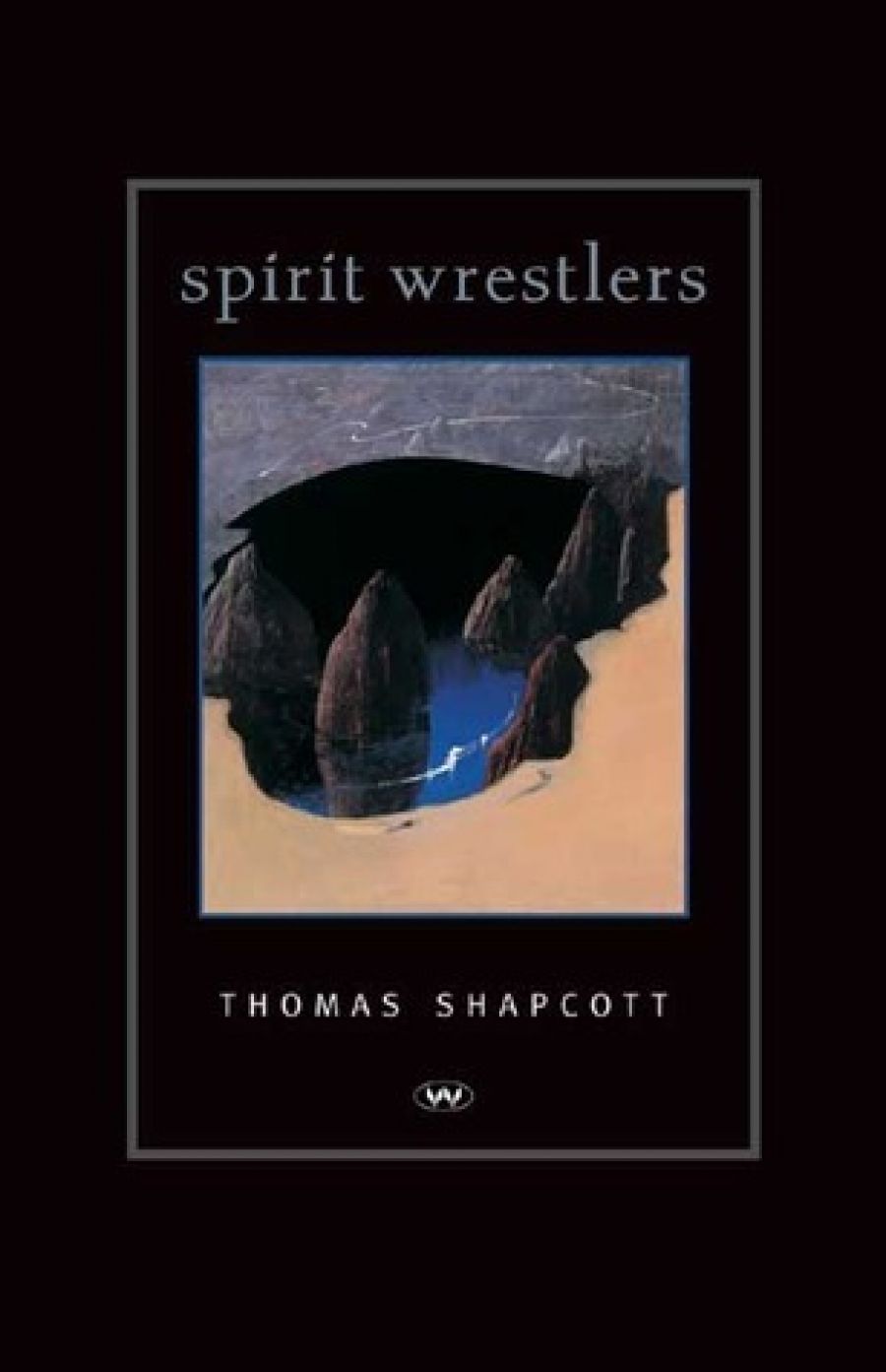
- Free Article: No
- Contents Category: Fiction
- Review Article: Yes
- Online Only: No
- Custom Highlight Text:
Spirit Wrestlers takes its title from ‘Doukhobors’, the name adopted by a strict religious sect that originated in Russia and that was harshly repressed both by the tsarist state and the church. The Society of Friends, attracted by the Doukhobors’ pacifist beliefs and by their prayer meetings, which reject liturgy ...
- Book 1 Title: Spirit Wrestlers
- Book 1 Biblio: Wakefield Press, $39.95hb, 313pp, 1 86254 645 2
Intriguing as these issues are, they are never probed extensively. Instead, they tend to become submerged in a range of other issues and themes, which are similarly underdeveloped. A prominent issue is masculinity, mainly Johann’s, which is threatened from time to time by Ivan’s. Initiated early into fatherhood, according to the traditions of his community, Ivan challenges his friend’s need for power. At other times, he attracts Johann’s protective instincts. The ambivalence has potential but remains shadowy, partly because we are rarely introduced to Ivan’s consciousness, whereas Johann’s is usually fully presented. In one of the most powerful sequences of the novel, a secluded rock pool becomes a symbol of their difficult, or near attainment of, brotherhood. The setting’s sinister physical qualities are brilliantly captured, but the emotional significance of the place and the events that take place there remain opaque. After Johann wins a medal in a swimming competition, which is made a pyrrhic victory for him by Ivan’s previous demonstration of superior skill, he is inspired by a sudden vision of the secret rock pool: ‘it was like something one could grip onto, something outside any sense of defeat, or self-pity, or personal humiliation.’ Why this should be so remains mystifying. At other points in the narrative, it appears that the pool offers much more to Ivan, perhaps even a homosexual relationship with Johann.
Meanwhile, both boys are dominated by powerful older men, whose own masculinity is mysteriously challenged by their descendants. In Johann’s case, his loved but eccentric German great-grandfather develops sadistic tendencies which unsettle his growing sense of male selfhood. Johann’s reflections on this episode (‘Being a man meant being a competitor. It was difficult to acknowledge the pain in that’) remain unchallenged either by himself or by the narrator. As for Ivan, his father transmutes from enigma to brooding malevolence, thankfully exterminated in the final thriller-like sequences of the novel.
Wrestling, meanwhile, constantly weaves into this major theme of masculinity. Ivan wrestles physically with Johann, physically and emotionally with his father, with the ideas and traditions of his community, and with his secret longing for the ‘gift’ that Johann will never give; the Doukhobors allegedly wrestle with spirits and with the invasive challenges of the external community; Johann wrestles with frequent threats to his self-esteem; and both men wrestle with each other to achieve physical and moral superiority. The Old Testament story of Jacob’s wrestling with an angel is mentioned, but fails to take purchase as the novel eventually abandons exposition of the occult for action. In the latter stages, the narrator’s command of Ivan becomes less certain and he devolves into an unpredictable and ambiguous figure, magically restored to humanity in the final paragraph. At the same time, Johann’s experiences in Vietnam, which have damaged him both physically and emotionally, are only cursorily explored. The two main women characters are both represented externally and remain more an assemblage of predictable attributes than known entities. Johann’s brief dalliance with the superficial Janice, in particular, seems irrelevant both to the plot and the novel’s themes.
Notwithstanding all these loose ends, Spirit Wrestlers is a novel of atmospheric power and poetic potential. Constantly on the point of achieving significant breakthroughs in its first sections, it remains an intriguing work in progress.


Comments powered by CComment